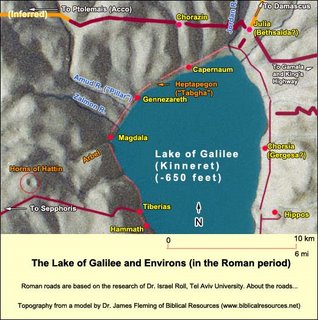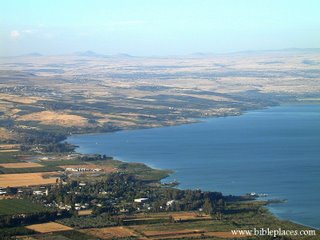"Many tax collectors and sinners came"
Read: Matthew 9:9-13
Since the Philippine government implemented a lifestyle check on its employees, eleven officials from the Bureau of Internal Revenue (BIR) face charges of graft and corruption at the Ombudsman. The current BIR commissioner is also battling charges of failing to collect the target P675 billion collection for this year. This department has always been a favorite "den of thieves".
In the world of the New Testament, the expression "tax collectors and sinners" (Mt 9:10) is common, almost like a slogan. Why are tax collectors sinners? Not all of them are corrupt (as there are a lot good souls also at the BIR).
The Greek word "telōnēs" usually translated "tax collectors" properly means "toll collectors".
Matthew (called Levi in the Gospels of Mark and John) worked in Capernaum, Jesus' second hometown along the edge of the Lake of Galilee. This town was strategic as it was located along the major road of international trade between Damascus and Egypt. Goods and merchandise sold in other towns had to pass through Capernaum. Tolls had to be paid for goods entering and leaving Capernaum. Matthew was a toll collector who worked in the Capernaum custom house (someone like a customs collector today).
The strategic location of Capernaum,
situated near one of the main highways connecting Galilee with Damascus
situated near one of the main highways connecting Galilee with Damascus

Why are toll collectors called "sinners"? The rich and the educated, a minority in Jesus' day, routinely criticized toll collectors because such job was not honorable as collections were paid to the colonial power, Rome. Though against their will because they were Jews, they had to do the job to survive. Any extra amount came from tips from the merchants who passed through Capernaum. Toll collectors rarely could cheat because of the efficiency of the auditing of the Roman empire.
Toll collectors were not sinners because they cheated on their job. They were simply stereotyped as sinners because they worked in such a "dirty" job. We can’t but admire Jesus who ate with them and considered them as friends.
Capernaum today, once a busy transit fishing port

For an advanced study of this topic click on this site.
For news (in Tagalog) of the on-going SVD Chapter, click on this blog.
No comments:
Post a Comment